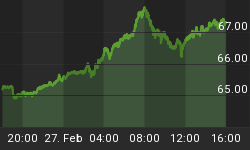As much of Europe prepared to party, Belarus began its festive season with a flurry of blockchain- and bitcoin-related activity, legalizing cryptocurrency-related activities with immediate effect. Bitcoin mania has made it to Minsk – and is showing no signs of slowing down as 2018 approaches.
Detractors may claim that the landlocked former Soviet state is somewhat late to the game – in spring this year, neighbor Ukraine struck a blockchain deal with Bitfury that the latter’s CEO called “probably the largest of its kind anywhere.â€
However, Belarus’ sudden fervor to throw its lot in with blockchain and bitcoin is notable for its exceptionally wide scope. Long-serving president Aleksandr Lukashenko (who once called the internet “a pile of garbageâ€) has effectively kicked open the doors to a whole range of domestic and overseas blockchain and cryptocurrency operations.
Minsk’s moves
On December 22, he unveiled a range of surprising legal measures to a meeting of business representatives, saying, “Belarus will become the first state in the world to open up broad opportunities for the use of blockchain technology. We have every opportunity to become a regional center of competence in this field.â€
As part of the package, the country has legalized the use of smart contracts, claiming that it is the first state in the world to do so. Indeed, any company working on smart contract development will now be exempt from paying income tax until 2023.
Cryptocurrency pioneers also have reason to sit up and take note – Lukashenko’s decree not only legalizes initial coin offerings (ICOs), but has also offered full, legal, tax-free status to all token issuance, digital currency trading and mining enterprises for the next five years.
Companies will also be allowed to work under what it terms “English law,†presumably meaning overseas crypto-related companies can sidestep Belarus’ often-suffocating, Soviet-era bureaucracy.
Park life
The Minsk government is no doubt hoping that its new High-Tech Park will rival Kazakhstan’s Astana International Financial Center, which has seen the likes of Deloitte and Waves team up with Kazakh and other CIS companies in an attempt to provide region-wide blockchain solutions.
In fact, it looks like almost anything goes at Belarus’ High-Tech Park. The head of the National Bank says the government will be “okay†with cryptocurrencies being used for international transactions at the park, and has even mooted the idea of launching a national digital currency.
Overseas IT experts now require no visa for stays of up to 180 days in Belarus, and VAT will not be payable for anyone transferring ownership rights, either to individuals or to overseas organizations.
Experts all around the CIS region have spent much of the festive season and the lead-up to the New Year trying to discover the rationale behind Minsk’s largely unexpected move. Russia’s Rambler quotesAlexander Chekan, venture partner of the Haxus Foundation, who claims that the both Belarus’ National Bank and its stock exchange are now conducting blockchain pilots.
Chekan also claims that Minsk’s laissez-faire attitude to the High-Tech Park will lead to “more corporations setting up R&D operations in the country, and an influx of start-ups and funding from other countries where blockchain regulations are stricter.â€
Earlier this year, Chekan told reporters that Belarus’ banking and tax systems also needed “the ability to work with the most modern payment tools, ranging from PayPal to bitcoin.â€
“Europe’s last dictatorâ€
So where did Belarus’ sudden fervor for all things crypto and blockchain-related come from?
Belarus’ regime is notably guarded about most of its policy decision, and Lukashenko, known as “Europe’s last dictatorâ€Â (and the longest-serving head of state on the continent) is known to keep his cards very close to his chest.
However, one of Belarus’ leading cryptocurrency advocate, businessman Viktor Prokopenya, has been meeting with Lukashenko since early this year and appears to have won the president’s confidence on cryptocurrency matters. The latter’s head was apparently turned after a visit to Prokopenya’s offices back in March.
Prokopenya even addressed the Minsk parliament last week, saying, “Belarus wants to be an IT capital for the Slavic world like Hong Kong. In times of sanctions and political instability at our borders, this is more urgent than ever.â€
Indeed, Prokopenya’s mention of borders is telling – in addition to Ukraine’s blockchain operations, Russian counterpart Vladimir Putin has developed a keen interest in cryptocurrenies in 2017. The Kremlin chief has met with Ethereum founder Vitalik Buterin, while plans are afoot to create a “Bitcoin City†near the Chinese border.
Other former CIS states have pressed ahead with blockchain technology projects and crypto ventures that look like they are already bearing fruit, particularly the Baltic States to the west and Kazakhstan and Georgia to the south. Belarus has been the odd-one-out – a status it is looking to rectify with remarkable alacrity.
What’s in store for 2018?
Cryptocurrency is now enjoying a spectacular rise in popularity in the country. BNTU, Belarus’ biggest technical university, has begun offering degree courses in Cryptocurrencies and Derivatives, with scores of people rushing to submit their applications.
Leading Belarusian bankers are expressing a keen interest in the central bank’s tentative plans for a national digital currency. Belgazprombank’s deputy chairman states, optimistically, “If [the Belarusian government] feels that a national digital currency would genuinely be of benefit, the potential is there to release it relatively quickly.â€
Belarus did not even feature on Forbes’ 2017 list of the Best Countries for Business – although there were places for neighbors and rivals such as Russia (58), Moldova (87) and Ukraine (80). Russian news site Sputnik claims, “Most likely, Forbes did not even consider evaluating Belarus when it was drawing up its list.†Hopes are high that all this will change if overseas companies take note of Belarus’ cryptocurrency and blockchain technology policy announcement.
Indeed, as Russia and Ukraine, Belarus’ closest frenemies, appear to dither over their crypto policy, Minsk will hope it has stolen a march on Moscow and Kiev in one key area – legislation. It is a surprising move, and one that may yet reshape the entire CIS region’s financial landscape.
By Tim Alper via Crypto Insider
















